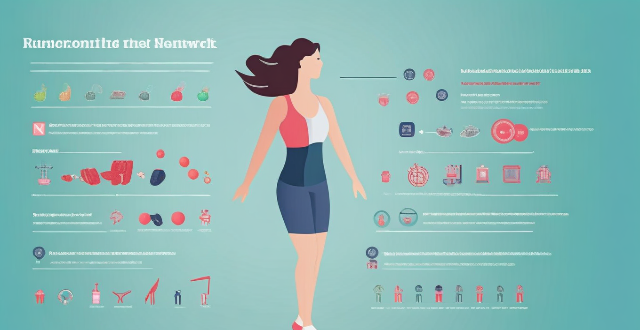Nutrition plays a crucial role in sports injury recovery by providing the body with essential nutrients for tissue repair and growth. Protein, vitamins, minerals, and fluids are all important for healing, and proper nutrition can help speed up the process. In addition to nutrition, other factors such as rest, stress management, and physical therapy also play a role in sports injury recovery.

What Role Does Nutrition Play in Sports Injury Recovery?
Nutrition plays a crucial role in sports injury recovery. It is important to understand that proper nutrition can help speed up the healing process and prevent further injuries. In this article, we will discuss the various ways nutrition can aid in sports injury recovery.
1. Protein Needs
Protein is an essential nutrient for muscle repair and growth. During injury recovery, protein needs are higher than normal. Consuming enough protein can help reduce inflammation, promote tissue repair, and rebuild muscle mass. Good sources of protein include lean meats, fish, eggs, beans, and nuts.
1.1 Protein Supplements
In some cases, athletes may need additional protein supplementation to meet their needs. However, it is important to consult with a healthcare professional before starting any supplement regimen.
2. Vitamin and Mineral Needs
Vitamins and minerals play a vital role in the body's ability to heal itself. Vitamin C helps with collagen production, which is necessary for wound healing. Iron is also important for red blood cell production, which helps transport oxygen throughout the body. Zinc is essential for immune function and wound healing.
2.1 Food Sources
Foods rich in vitamins and minerals include fruits, vegetables, whole grains, dairy products, and lean proteins. It is important to eat a balanced diet that includes all food groups to ensure adequate intake of these nutrients.
3. Fluid Needs
During injury recovery, fluid needs may increase due to increased sweating and loss of fluids through injury sites. Drinking enough water and other fluids can help prevent dehydration and promote healing. Hydration also helps flush out toxins from the body, which can slow down the healing process.
3.1 Water vs. Sports Drinks
While water is the best source of hydration, sports drinks can be helpful during intense exercise or when sweating heavily. Sports drinks contain electrolytes that replace those lost through sweat, but they should not be used as a replacement for water during everyday activities.
4. Other Factors
In addition to nutrition, other factors such as rest, stress management, and physical therapy can also play a role in sports injury recovery. Proper rest allows the body to heal and recover from injury, while stress management can help reduce inflammation and promote healing. Physical therapy can also help restore range of motion and strength after injury.
4.1 Stress Management Techniques
Stress management techniques such as meditation, deep breathing exercises, and yoga can help reduce inflammation and promote healing by reducing cortisol levels in the body. These techniques can also help improve mental clarity and focus during recovery.